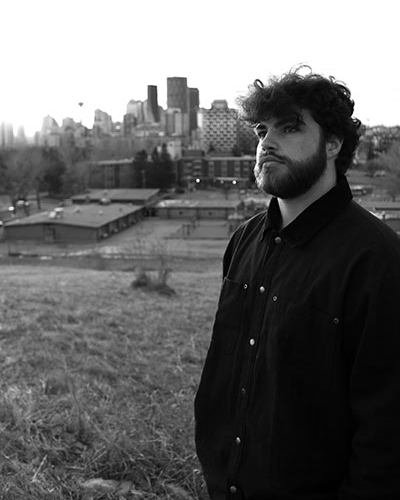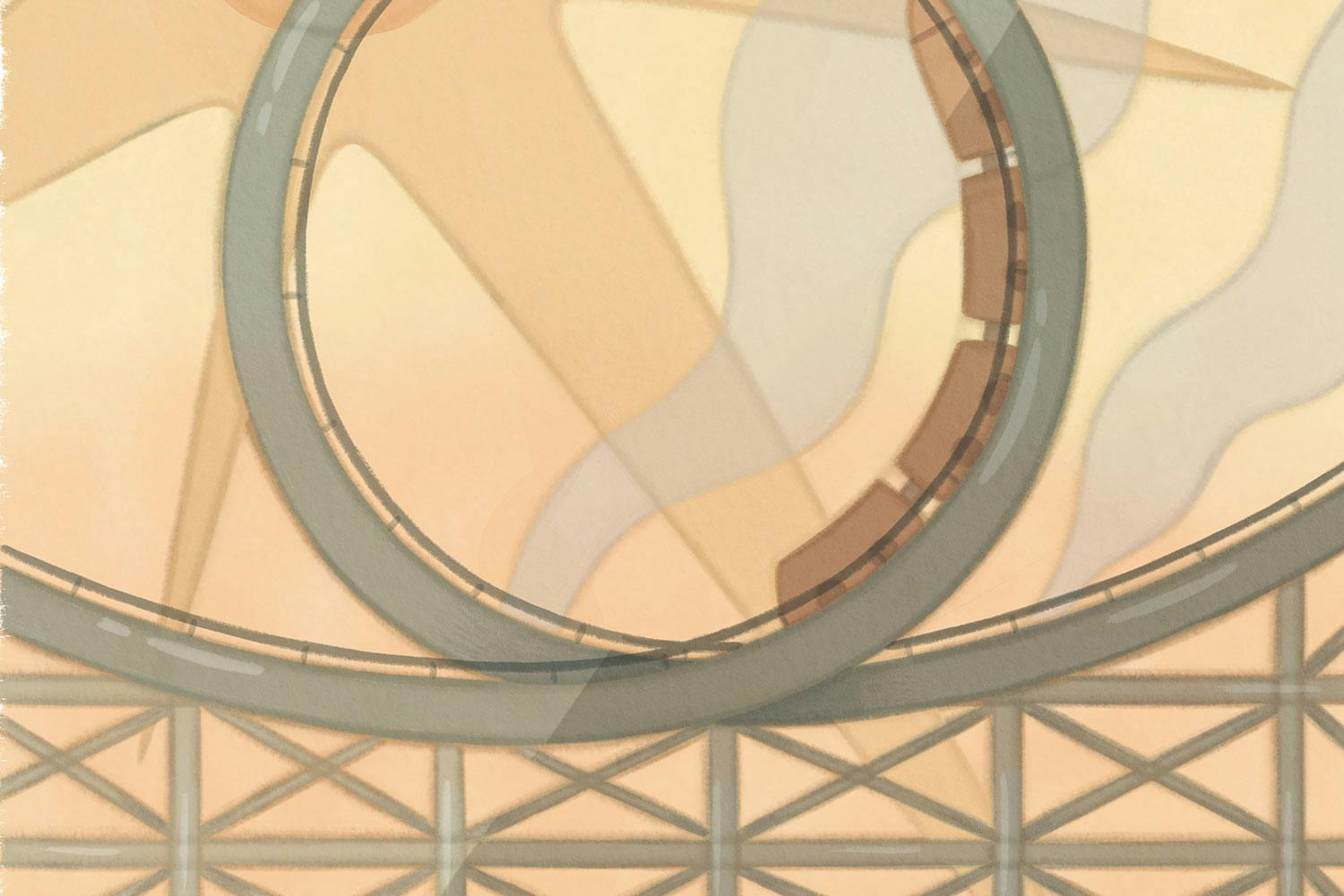A Climate Awakening in the Summer Smoke
A week of working in the heat and smoke opened an Alberta student’s eyes to the realities of the climate crisis.
Growing up in Lloydminster—a small town straddling the border between Saskatchewan and Alberta—Gage Smith lived on the Alberta side near a large oil refinery. He now wonders whether that location might have something to do with the persistent cough that has nagged him his whole life. Born to parents who both worked as journalists, Gage, 21, was a self-described “hyper kid” and spent much of his youth hanging out with friends, watching Spider-Man, and not thinking too much about the environment.
When Gage was 14 years old, he moved with his family to Calgary. The city is the headquarters for many of Canada’s oil and gas companies. It’s also about an hour away from the Rocky Mountains. “It felt like utopia going from there to here,” he said. In part because it’s like a mountain town: “the air and water quality here was so much better.” He would venture to the nearby resort communities of Canmore and Banff where he would go hiking.
Following in the footsteps of his parents, Gage enrolled in journalism at Mount Royal University in Calgary. To help pay for his studies, Gage worked during the summer break at Calaway Park, an amusement park outside of the city. On one particular work week that summer, the combination of smoke from wildfires in BC and sweltering temperatures was stifling. This first-person narrative was shared as part of the Climate Disaster Project. Details about the project follow this story.
There was a stretch of like a week, where the smoke was really, really bad. And it was that hot. I had a coworker pass out, a bunch of people had to call in. There are people with asthma who just couldn’t come to work. People hacking and coughing. It was really bad.
There’s this one ride where, when you operate it, you’re on a metal platform. So it magnifies the sun on you. And I worked that for four straight hours. There are people that are supposed to bring you water. They were so busy that they didn’t get to me the whole time.
I remember I was texting one of my friends, and he has asthma. He was like, “I am screwed. It’s too smoky. I won’t be able to breathe. I can’t be out there today. I have to hide in my house for a week.” I was like, “Wow, that sucks, man.” But looking back on it now, I’m like, “Yeah, that guy couldn’t do his job basically, just because of climate change.”

I can’t imagine doing a job like construction and having to work through something like that. I was a teenager trying to pay for university and I was struggling. Imagine what it’s like for the worker on the highway in 45°C with the smoke, who has to put food on the table for his family. That was when climate change started to really kind of feel a little bit more real.
I do love it here, but I don’t know if I can imagine myself living here if it’s covered in smoke constantly. I know that we might be the last generation to actually look out our window and see the skyline of the city from a ways away, because these wildfires are just going to get more frequent. If it gets really bad, I might have to leave. So I appreciate the beauty of the natural world while it’s still here.
For the average person, I don’t think using less electricity or carpooling with your friends is gonna matter at all in the grand scheme of things. And I don’t think enough people could make that change. I think it’s in the hands of governments and corporations, and they have the power to make enough change to actually make a difference. And I don’t have any faith in them to do that.
I feel like that’s the only attitude you can have towards climate change right now: “Okay, we’re dead. But whatever. Let’s die swinging.”
Have you ever seen Pirates of the Caribbean? You know, at the end of the second one, when Jack Sparrow was fighting the Kraken, and he’s gonna get eaten, but he fights it anyway, even though he’s gonna get eaten alive? I feel like that’s the only attitude you can have towards climate change right now: “Okay, we’re dead. But whatever. Let’s die swinging.” Going to Mount Royal exposed me to that. It made me sit down and think about it and research it and care more about it. And now I know that we’re in deep shit, I don’t care ‘cause I still want to go down swinging.
Not too long ago, I didn’t really care that much about it. It felt so far away and it wasn’t really directly hurting people. I thought people were too scared of it. I thought there was a lot of soapboxing about it who pretended to care about it and didn’t.
But I’m realizing that most people who bring attention to it really do care. I still feel like things can change fast, and that things aren’t quite set in stone yet. There is hope. Things can change for the better.
This story was created as part of the Climate Disaster Project. Based at the University of Victoria and led by faculty at 12 other post-secondary institutions, the project includes a virtual international class where journalism, social work, and writing students work with people who have lived through climate disasters to share those stories.
Before the students undertake that work, they share their own stories with one another. And now some of those stories are being shared with you, Asparagus readers. It’s the beginning of a decades-long project to create the world’s largest memory vault of climate experiences, where we will follow a perennial pattern of sharing stories, and finding the problems and solutions in them. Because stories create community, and community creates hope. Visit our Climate Disaster Project page to read more student narratives.
Print Issue: Summer/Fall 2022
Print Title: We’re All in This Together
